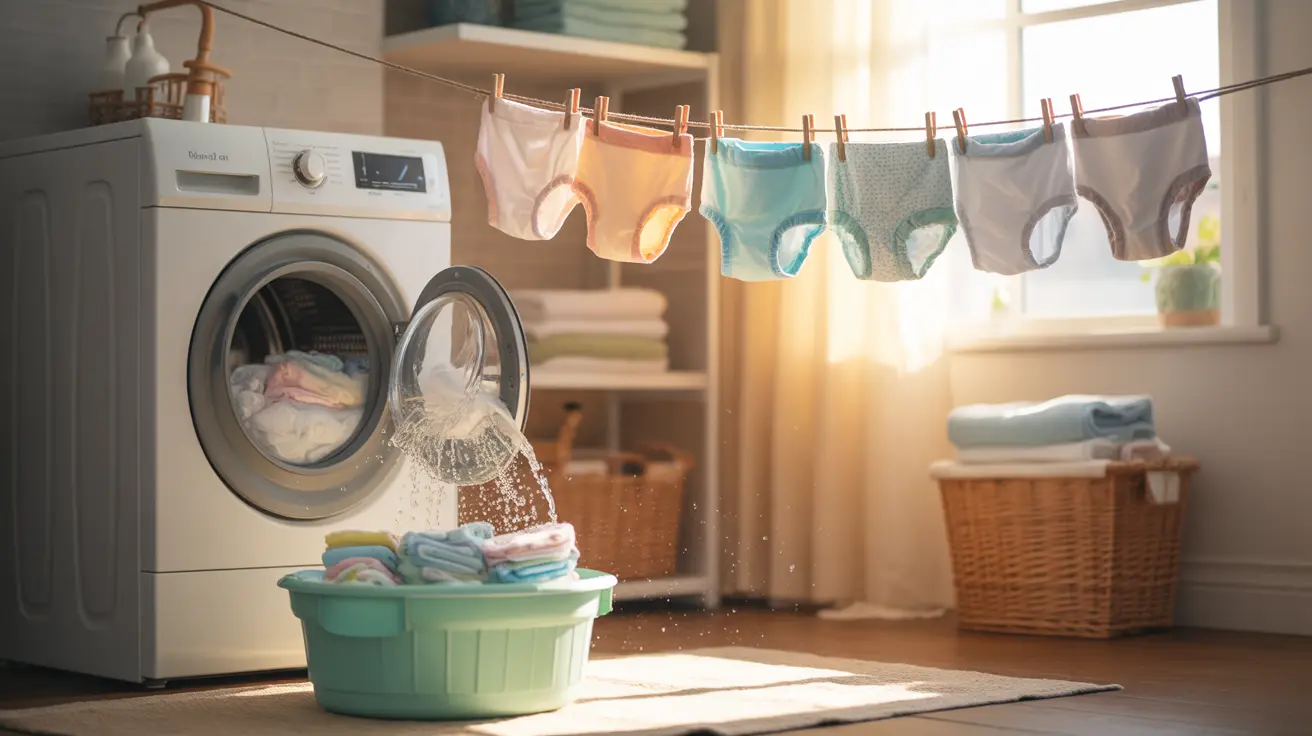Making the switch to cloth diapers is an eco-friendly and cost-effective choice for many parents. However, proper washing techniques are crucial for maintaining their cleanliness, absorbency, and longevity. This comprehensive guide will walk you through everything you need to know about washing cloth diapers effectively.
Understanding the correct washing methods not only ensures your baby's comfort and health but also helps preserve your investment in cloth diapers. Let's explore the essential steps, products, and best practices for keeping your cloth diapers clean and functional.
Pre-wash Preparation
Before starting the main wash cycle, proper preparation is essential for optimal cleaning results:
- Remove solid waste and store in a dry pail or wet bag
- Separate inserts from pocket diapers
- Unfold all diapers to ensure thorough cleaning
- Check for stains that may need pre-treatment
The Main Washing Process
Initial Rinse Cycle
Start with a cold water rinse cycle to remove any remaining debris and prevent stains from setting. This step is crucial for preventing ammonia buildup and maintaining diaper quality.
Hot Wash Cycle
Follow these steps for the main wash:
- Use hot water (140-150°F) for thorough sanitization
- Select the heavy-duty or normal cycle
- Ensure adequate water level for proper agitation
- Add the appropriate amount of detergent based on load size
Choosing the Right Detergent
Selecting the proper detergent is crucial for maintaining diaper effectiveness:
- Use a cloth diaper-safe detergent without fabric softeners
- Avoid products containing oils, perfumes, or optical brighteners
- Consider plant-based options for sensitive skin
- Measure detergent carefully to prevent buildup
Drying Methods and Care
Machine Drying
When using a dryer, follow these guidelines:
- Use medium heat to prevent damage to elastic and PUL
- Remove promptly to prevent wrinkles
- Check manufacturer's recommendations for specific care instructions
Line Drying
Line drying offers several benefits:
- Natural sanitization from sunlight
- Gentle on diaper materials
- Environmental friendliness
- Potential stain removal through sun exposure
Maintaining Diaper Quality
Regular maintenance ensures long-lasting performance:
- Strip diapers every 3-4 months to remove buildup
- Check elastics and snaps for wear
- Monitor absorbency levels
- Address stains promptly
Frequently Asked Questions
What is the best step-by-step process for washing cloth diapers to keep them clean and stain-free? Start with a cold rinse cycle, followed by a hot main wash with appropriate detergent. Complete with an extra rinse if needed. For stains, sun exposure during drying can help naturally bleach them out.
Which detergents and additives are safe and effective for washing cloth diapers without damaging their absorbency? Choose detergents specifically designed for cloth diapers or those free from fabric softeners, enzymes, and optical brighteners. Avoid using bleach, essential oils, or fabric softeners as these can affect absorbency and cause buildup.
How should cloth diapers be dried to maximize their lifespan and maintain hygiene? Line drying in sunlight is optimal for natural sanitization and longevity. If using a dryer, use medium heat and remove promptly. Always check manufacturer specifications for specific drying instructions.
How often should cloth diapers be washed, and what water temperature is ideal for cleaning them safely? Wash cloth diapers every 2-3 days to prevent odor and stain setting. Use cold water for the initial rinse and hot water (140-150°F) for the main wash to ensure proper sanitization.
Can natural ingredients like baking soda, lemon juice, or vinegar be used in washing cloth diapers, and what are their benefits and risks? While natural ingredients can help with odors and stains, use them cautiously. Vinegar can damage elastic and PUL materials, while baking soda may leave residue. It's safer to stick with cloth diaper-safe detergents for regular washing.




